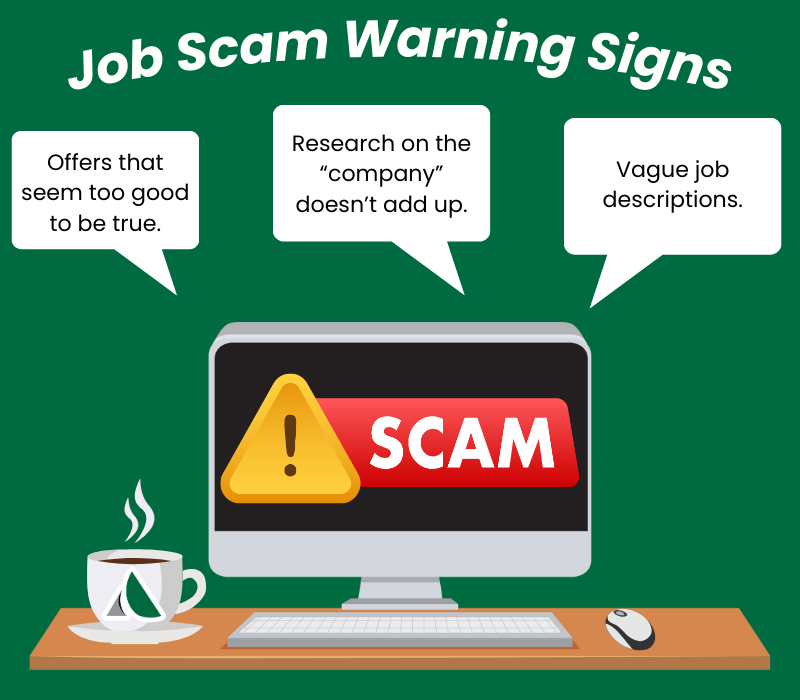Online Banking
Routing Number: 291274085
We will never ask for your login information, do not give it out to anyone.

In an increasingly virtual world, with countless remote-work jobs becoming more and more available, there are more opportunities than ever for scammers to get creative with employment scams. A scammer will advertise for a “job” in the same ways an honest employer would – on job sites and social media, in local newspapers, even on TV or on the radio. You are promised a job, and in return they collect your personal information and sometimes your money.

Remote work. Many people dream of working from home, scammers know this and regularly try to take advantage. Scammers offer a job such as reshipping or reselling products or offering start-up kits to help you start your own business with just a small investment. The general rule of fraud applies here: If it sounds too good to be true, it probably is. If you are offered a job where you are led to believe you can make tons of money in relatively short time, it is almost undoubtedly a scam.
Common Remote Work Scams:
Before you apply to a job posting, look the company up online. Make sure they exist, are honest, and have real employee reviews from career websites like Indeed or Glassdoor. Some small companies may not have reviews, but you can determine their legitimacy in other ways.
Mention the job to someone you trust, like a relative or best friend. Get the advice from others who are not emotionally invested.
Do not pay for the promise of a job. Honest employers, especially government jobs, will never ask you to pay to get the job. Do not fall for the idea that you can pay for a startup kit or masterclass to launch a successful online business from home. These offers are almost always a scam to get your money and very, very few people are successful in operating a business from this type of scenario.

Accidents and lapses in judgement happen… but now what? Immediately contact the financial institution you used to send money and report the fraud. You can ask to have the transaction reversed, if possible, but it is unlikely you get your money back if you paid out of a checking account (with a cash transferring app or a debit card). If you used a credit card, you may have more luck reversing the transaction.
If you provided information about your accounts (card numbers, account numbers), contact your financial institution immediately to deactivate cards and close accounts.
If you see a job scam, or lose money to one, report it to the FTC at ReportFraud.ftc.gov. You can also report it to your state attorney general.
Find out more about how to avoid scams at ftc.gov/scams.
Source: FTC Consumer Advice. https://consumer.ftc.gov/articles/job-scams
There will be a two-week timeframe from when this blog is posted to read it and take the quiz. Those with the correct answers will be entered into the drawing for that post. Winners will be contacted via the information they entered when taking the quiz. One entry per person. NorthRidge employees and their immediate family (spouses, parents, children, live-in partners), and board members, are not eligible to win. Additional giveaway rules are located here.